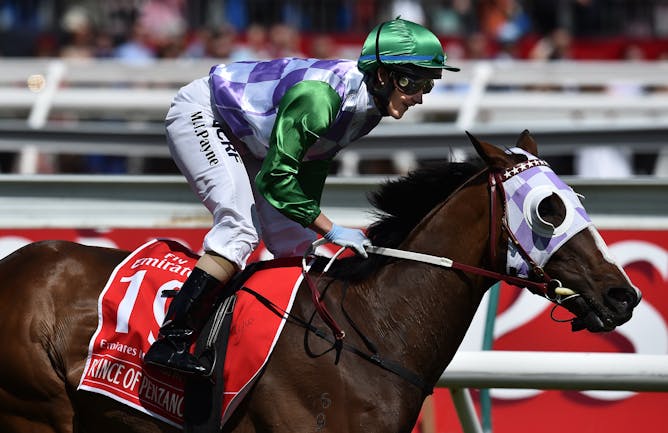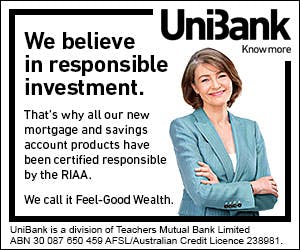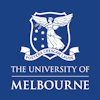|
|
|
Editor's note
|
|
On a sunny day in Sydney last Sunday Tim Flannery, former Australian of the Year, appeared on a panel of international journalists convened to discuss the reporting of climate science. Kerry O’Brien kicked things off by asking about the prognosis. Flannery said he wouldn’t answer until the young people at the Sydney Opera House had been given a chance to leave. Things were so dire he feared for their mental health.
My first reaction was that Flannery had developed a taste for the theatrical. No. In the conversation that ensued it became clear that the world cannot avoid 1.5 degrees of warming and the devastating damage that entails, and many far worse scenarios were in play. Flannery’s deep anger and distress was palpable. He said that once he’d viewed climate sceptics with the same indulgence you might afford an eccentric uncle, but now the gloves were off. Deniers were destroying the lives of our children.
Many countries are gripped by policy paralysis, he said, Australia chief among them. And journalism has utterly failed to convey the urgency and magnitude of the problem. Kyle Pope, the editor and publisher of Columbia Journalism Review, told the Antidote festival audience that in 2018 the major TV news networks in the US aired just two-and-a-half hours of climate coverage. In the three prime-time US general election debates in 2016 there was not a single question on the topic.
So how do responsible journalists sound the alarm without sounding alarmist? At The Conversation we are committed to bringing you the voices of scientists and researchers who understand the evidence. We think the proper role for journalism is to provide the clean information that is the lifeblood of democracy. But we also understand it’s vital that these messages gain traction beyond the academic communities from which they emanate.
With this in mind we have recently appointed a new editor to lead our coverage of Environment & Energy. Nicole Hasham is a Walkley Award-winning journalist who for the past four years has been based at Parliament House covering environment and energy for the Nine/Fairfax newspapers.
Nicole will remain in the Canberra press gallery for The Conversation, bridging the gap between policymakers and scientists, and promoting a more informed discussion based on evidence and solutions. She will work alongside the deputy section editor, Madeleine De Gabriele, and will build on the work of her predecessor, Mike Hopkin, who is now our Science and Technology editor.
The Conversation Australia has also joined more than 170 other media outlets in an initiative called Covering Climate Now, co-founded by the Columbia Journalism Review and The Nation. The idea is to provide a single week of dedicated high-quality coverage of climate change ahead of the United Nations Climate Action Summit in New York on September 23.
We see this as the beginning of a new phase in our climate coverage, a vital conversation between scientists and politicians. We don’t want to be alarmist, but if Flannery and the scores of scientists who share his view are right, we are sleepwalking toward disaster. We cannot rest until the scientists are being heard, and solutions are in place that can provide a secure future for all our children.
|
Misha Ketchell
Editor & Executive Director
|

|
|
Top story
|

Nine’s fundraiser for the Liberal party left journalists appalled, as they should have been.
Julian Smith/AAP
Michelle Grattan, University of Canberra
While the Liberal party reaped mega dollars at Nine's Monday fundraiser, Nine and its chief executive faced a backlash from staff at the company's recently acquired former Fairfax newspapers.
|

Michelle Payne’s 2015 Melbourne Cup win was a watershed moment for Australian female jockeys, but there is still a long way to go.
Julian SmithAAP
Michelle O'Shea, Western Sydney University
More and more Australian jockeys are female, but the sport's entrenched masculinist culture is proving hard to change.
|

The sacred site of Uluru. In our Law we know that rocks are sentient and contain spirit.
Dan peled/AAP
Tyson Yunkaporta, Deakin University
There are memorial stones scattered along songlines throughout the Australian landscape, victims and transgressors transformed into rock following epic struggles to stand as cautionary tales.
|

Australia has changed the way it decides whether children with Down syndrome, and other conditions, can migrate permanently to Australia. But the changes don’t go far enough.
from www.shutterstock.com
Mary Crock, University of Sydney
How Australia treats migrants with health conditions and disabilities is discriminatory, obscure and unfair, as the UN will hear later this month.
|
Education
|
-
Paul Brown, Curtin University; Kok-Sing Tang, Curtin University
The questions in the NAPLAN numeracy tests are often years behind the level of mathematics students following the curriculum are studying that year.
|
|
Cities
|
-
Jennifer Kent, University of Sydney
Planners understand the key elements of urban communities that will improve residents' health and well-being. They also need to be able to convince others to create such communities.
|
|
Science + Technology
|
-
Mirjam Kaestli, Charles Darwin University; Karen Gibb, Charles Darwin University
Many remote communities in Australia's north rely on bore water. But a new microbiology analysis suggests that the chemistry of untreated water can allow disease-causing bacteria to grow unchecked.
-
Andrew Tomkins, Monash University
It's established Mars was once a planet with surface-level water. So with multiple MARS missions starting next year, the key to seeking out martian life may instead lie in the contents of its 'dust'.
|
|
Business + Economy
|
-
Richard Holden, UNSW
More than good management and more than good luck, we've been blessed by delightfully fortunate timing.
-
Michelle Grattan, University of Canberra
This week's June quarter national accounts showed the weakest economic growth since the GFC, but Treasurer Josh Frydenberg remains optimistic.
-
Graham White, University of Sydney
The Australian government's approach to economic growth is strictly conventional, and may be leading to the wrong policies.
|
|
Health + Medicine
|
-
Bruce Baer Arnold, University of Canberra
Only pharmacists can own a pharmacy and you can't set one up within 1.5km of an existing one. But calls to loosen these rules could give health companies a green light to set up more chemist chains.
|
|
Politics + Society
|
-
Adrian Beaumont, University of Melbourne
US President Donald Trump is in an unenviable position as the race towards the 2020 presidential election heats up. Meanwhile, the UK's attempts to Brexit continue to be untidy.
|
|
Environment + Energy
|
-
Jake Whitehead, The University of Queensland
Despite the overwhelming evidence that electric vehicle technology can deliver huge benefits, misinformation continues to muddy debate. Let's look at the facts.
|
|
| |
Featured jobs
|

|
Union Organiser — South Melbourne, Victoria
|

|
University of Melbourne — Parkville, Victoria
|

|
La Trobe University — Bundoora, Victoria
|

|
RMIT University — Melbourne, Victoria
|
|
|
|
| |
| |
| |

|
| |
| |
| |
Featured events
|

|
RMIT University, The Green Brain, Building 22, Level 7, 330 Swanston Street, Melbourne, Victoria, 3000, Australia — RMIT University
|

|
Forum Theatre - Arts West building, the University of Melbourne, Parkville 3010, Melbourne, Victoria, 3010, Australia — University of Melbourne
|

|
The University of Sydney, Sydney , New South Wales, 2006, Australia — The Australian Prevention Partnership Centre
|

|
The University of Sydney, Camperdown, New South Wales, 2006, Australia — University of Sydney
|
|
|
|
| |
| |
| |
| |
| |
|
|
|
|
|
|
|